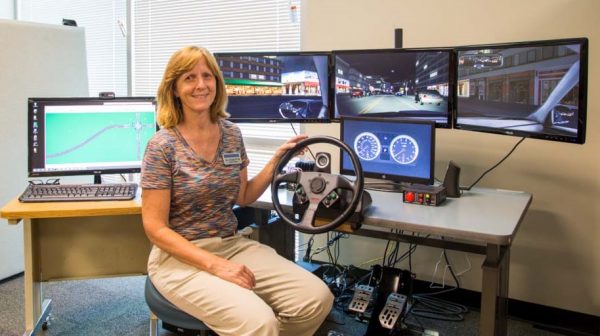ATSU-ASHS professor provides update on NIH grant research
Posted: March 29, 2019
In late 2017, Tara McIsaac PT, PhD, associate professor of physical therapy at A.T. Still University’s Arizona School of Health Sciences (ATSU-ASHS) received a grant from the National Institutes of Health (NIH). The three-year, $384,000 award has supported Dr. McIsaac’s research in neurosciences and neurological disorders.
With this grant, Dr. McIsaac has run studies on how multitasking in the brain works while driving with young adults, older adults, and those affected by Parkinson’s. As a result of her findings, she developed a driving simulator that helps identify how switching attention between using one’s arm (steering), and using one’s leg (pedals), are affected by Parkinson’s disease.
Right now, aim two and aim three of the study are more than halfway complete, and Dr. McIsaac and her team are working on finishing up data collection by the end of May, and planning to analyze their findings over the summer.
Last October, Dr. McIsaac and her team presented the aim one and aim three parts of the study at the International Movement Disorders Congress in Hong Kong. In May of this year, team member Emily McFadden, OT, ’19, who has worked on the study for a year and a half, will present the preliminary results from part of the aim two study as her capstone project. Later in the summer, McFadden will also present preliminary results of the study at the Association for Driver Rehabilitation Specialists national conference in Lexington, Kentucky.
As Dr. McIsaac and her team continue collecting, analyzing, and presenting data, they hope to explore therapeutic training strategies for attention shifting and increasing use of contextual clues for switching attention in people affected by Parkinson’s.